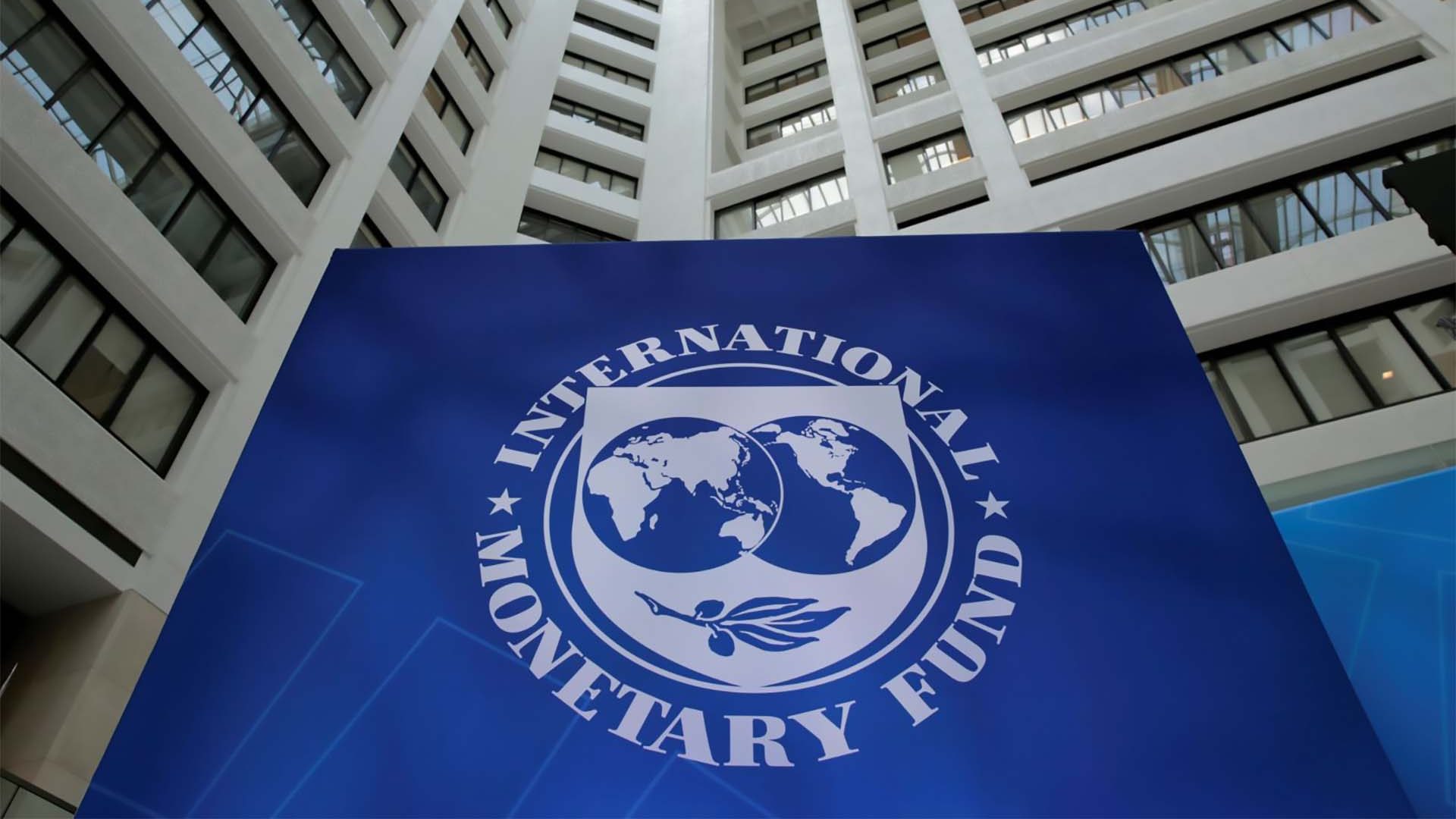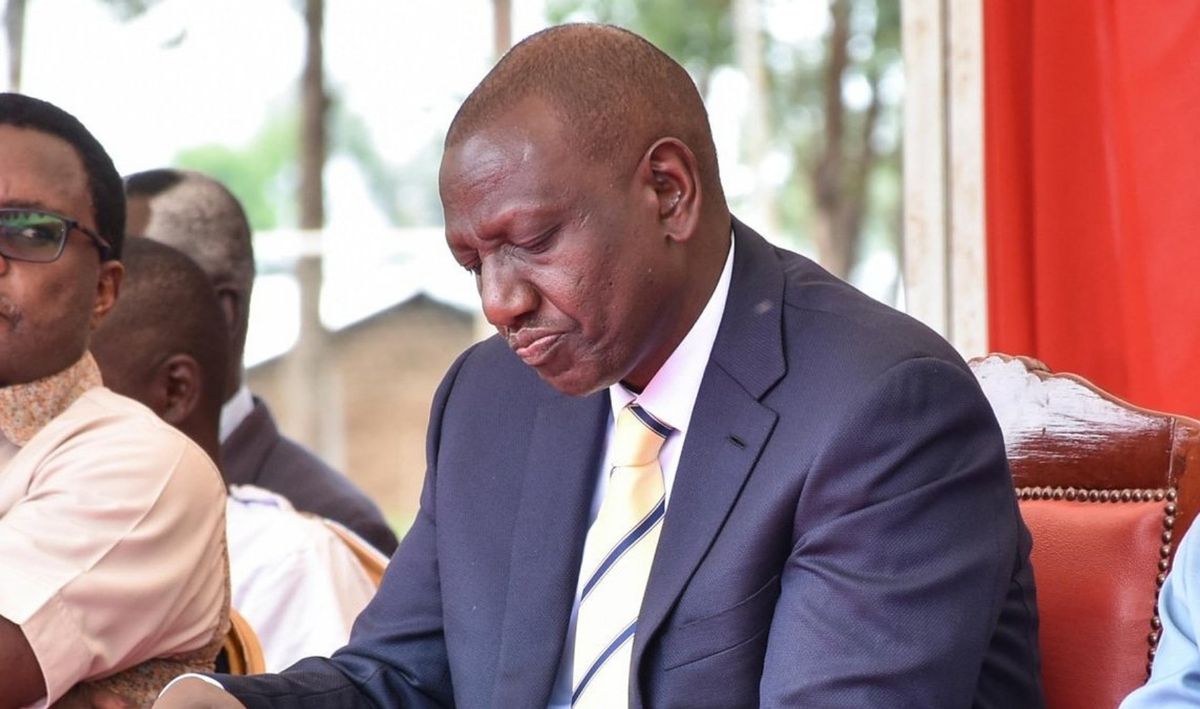Economy
Why the IMF Is Keenly Watching Kenya’s Debt Crisis

Kenya’s financial troubles have reached a boiling point, catching the eye of the International Monetary Fund (IMF). With billions in debt and rising repayment costs, the IMF is reassessing Kenya’s financial health.
A major review is underway to decide if the country can handle more monetary support, or if it’s time to cut back.
This review, called a debt sustainability analysis, will influence whether Kenya gets another IMF program and how much it can borrow going forward.
As the world watches, Kenya stands at a dangerous crossroads, where poor fiscal choices could deepen an already alarming debt crisis.

In both 2023 and 2024, the government failed to meet revenue targets. Despite trying to introduce new taxes through the Finance Bill, public backlash forced the state to rethink. Protests erupted nationwide, paralyzing efforts to raise much-needed revenue. [Photo: Courtesy]
IMF Puts Ruto Gov’t Under Sharp Scrutiny as Kenya’s Debt Crisis Deepens
Kenya’s debt is no longer just a domestic concern. It’s now a matter of international alarm. The IMF, one of the country’s major lenders, has officially launched a debt sustainability analysis to determine whether Kenya can afford more financial aid—or if it has already bitten off more than it can chew.
This review comes after Kenya made a formal request for a new program with the IMF. While IMF mission chief Haimanot Teferra confirmed the request, she did not clarify whether this will be a lending or non-lending arrangement. Still, no fresh funds will be approved until the IMF completes its review.
The stakes are high. Kenya is expected to raise at least Ksh3.36 trillion ($26 billion) over the next ten years just to repay maturing loans. On top of that, it must find Ksh193.5 billion ($1.5 billion) each year to cover interest on foreign debt. These numbers are staggering—and deeply worrying to both international partners and local citizens.
The IMF’s upcoming board meeting to decide on Kenya’s request will only happen after the debt review is concluded. That means the country’s fate hangs in the balance.
Meanwhile, Kenya’s economic leadership insists things are under control. Treasury Cabinet Secretary John Mbadi dismissed claims that the economy was on the brink, asserting that Kenya aims to be debt-free by 2032. But experts remain skeptical. The numbers—and the missed targets—tell a different story.
Why the IMF Stepped In Kenya’s Debt Crisis
The IMF’s involvement isn’t random—it’s a direct response to Kenya’s chronic fiscal mismanagement.
In both 2023 and 2024, the government failed to meet revenue targets. Despite trying to introduce new taxes through the Finance Bill, public backlash forced the state to rethink. Protests erupted nationwide, paralyzing efforts to raise much-needed revenue.
Add to this the fact that Kenya’s Treasury budget for the upcoming fiscal year contains no provisions for fresh IMF loans. This suggests either a strategic shift in financing or a sign that the government knows IMF support is no longer guaranteed.
Kenya has also missed reform targets agreed upon in the current IMF program. These failures now threaten future access to funds. IMF officials are concerned that pouring more money into a system riddled with inefficiencies and poor execution will only worsen the problem.
In March 2025, signals emerged that Kenya and the IMF might abandon their current lending program altogether. The government wants a fresh start, but it won’t get one without proving that it can manage its debts better this time around.
Corruption Adds Fuel to the Fire
As if ballooning debts weren’t enough, Kenya’s image has been tainted by corruption scandals. The IMF has announced a separate investigation set to begin in June 2025. This probe will examine how public funds are misused, draining an already overstretched national budget.
For a country relying heavily on external aid, corruption presents a major roadblock. Donors and lenders like the IMF are wary of propping up a government that cannot account for its spending.
Unless corruption is tackled head-on, any future debt relief or loan approval will be meaningless. Money that should be building roads, schools, and hospitals often ends up in private accounts. The IMF knows this—and it’s now demanding real answers.
Final Thoughts
Kenya’s debt crisis is no longer just about numbers. It’s about trust, governance, and the ability to make tough decisions. As the IMF moves to reassess its support, Kenya must act fast to regain credibility. That means fiscal discipline, transparency, and bold reforms.
Failure to do so will not only lock Kenya out of crucial funding but could also trigger a full-blown financial meltdown. The world is watching—and so far, the signs aren’t good. Whether Kenya can escape the debt trap or sink deeper depends entirely on what it does next.
Kenya Insights allows guest blogging, if you want to be published on Kenya’s most authoritative and accurate blog, have an expose, news TIPS, story angles, human interest stories, drop us an email on [email protected] or via Telegram
-

 Investigations1 week ago
Investigations1 week agoBillions Stolen, Millions Laundered: How Minnesota’s COVID Fraud Exposed Cracks in Somali Remittance Networks
-

 News2 weeks ago
News2 weeks agoUS Moves to Seize Luxury Kenya Properties in Sh39 Billion Covid Fraud Scandal
-

 Investigations1 week ago
Investigations1 week agoJulius Mwale Throws Contractor Under the Bus in Court Amid Mounting Pressure From Indebted Partners
-

 News1 week ago
News1 week agoMAINGA CLINGS TO POWER: Kenya Railways Boss Defies Tenure Expiry Amid Corruption Storm and Court Battles
-

 Business2 days ago
Business2 days agoEastleigh Businessman Accused of Sh296 Million Theft, Money Laundering Scandal
-

 Americas1 week ago
Americas1 week agoUS Govt Audits Cases Of Somali US Citizens For Potential Denaturalization
-

 Business2 days ago
Business2 days agoEXPLOSIVE: BBS Mall Owner Wants Gachagua Reprimanded After Linking Him To Money Laundering, Minnesota Fraud
-

 Business2 days ago
Business2 days agoMost Safaricom Customers Feel They’re Being Conned By Their Billing System
















